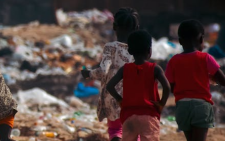An estimated 10 million children in Kenya are affected by poverty, which is depriving them of access to education, decent housing, proper sanitation adequate nutrition and other critical areas for their growth and development.
This figure represents the number of children living in multidimensional poverty, which means they lack basic needs while another 7.7 million children are affected by monetary poverty.
Of the 10 million children living in abject poverty, only 1.4 million children come from a family that receives support from one of the four cash transfer programmes under the National Safety Net Programmes (NSNP).
NSNP, which was established in 2013, is a common operating framework for the government’s four cash transfer programmes, including persons with severe disabilities cash transfer, older persons cash transfer, cash transfer for orphans and vulnerable children cash (CT- OVC) and the hunger safety net cash transfer.
Essential income
Currently, over eight million Kenyan children are without essential income support further exposing them to a lack of basic necessities like food, education and health care.
Experts warn that even with existing services targeting children such as the school feeding programme and health services, parents of the affected children lack the financial capacity to enable their children to realize their full potential.
A 2019 report on the cost of hunger released by the National Treasury showed that the country was losing 6.9 per cent of its gross domestic product to undernutrition annually.
Undernutrition in children, experts said, leads to increased mortality rates, diminished academic achievements, and compromised cognitive capabilities.
To further explain the devastating effects of the lack of social assistance coverage for children, the World Bank suggests that Kenya is just 55 per cent as productive as it could be if its children were able to access complete, high-quality education and comprehensive healthcare.
World Bank cautioned that without access to social protection, millions of households are unable to cover the out-of-pocket costs of sending children to school or accessing health services.
United Nations (UN) on its part says that inadequate parenting skills and growing up in poverty contribute to child protection issues like violence, neglect, and sexual abuse.
“Addressing poverty and providing effective parenting support is not only a social imperative but also a strategic investment in long-term societal challenges,” Unicef said
Cash transfers
According to the UN Children’s Welfare Agency, cash transfers to poor households have helped stimulate local economic growth through the multiplier effects they have, as the recipient households purchase goods and services in their communities.
“For every Sh1 transferred Sh1.34 was generated in income for the local economy,” Unicef said.
“Economists estimate that for every Sh100 injected into the local economy via cash transfers an extra 184 to 250 shillings of benefits are generated to the wider community by shopkeepers and local service providers.”
Contrary to the misconception that beneficiaries of cash transfers would divert the money to buying alcohol and cigarettes, UNICEF reported that there was an increased dietary diversity score by 15 per cent (driven by increased consumption of meat and fish) and significantly increased health spending among them.
Additionally, school enrolment of secondary school-aged children in beneficiary households also increased by 9.1 per cent while the sexual debut of those between 15-25 years old decreased by 23 per cent, which also means a reduction in early unintended pregnancy.
The UN agency said that women and children are worst hit by recurrent disasters caused by climate change as they resort to harmful coping mechanisms like early marriages, child labour and withdrawal from school.
“This perpetuates a negative cycle of poverty, preventing families from fully recovering. The result is that generations of children are unable to realise their full potential. Investing in shock-responsive social protection is essential for vulnerable families in Kenya’s low-income arid and semi-arid land (ASAL) counties,” it added.
Unicef noted that Kenya continues to face significant challenges as multiple shocks, including the recent drought and aftereffects of the COVID-19 pandemic, still impact large segments of the population.
Further, the recent El Niño raind compounded the situation, bringing heightened rainfall and flooding which led to the destruction of vital infrastructure jeopardizing access to food, drinking water and other basic needs.
Social protection
The agency emphasized that access to reliable social protection, including measures like cash transfers and social health insurance is crucial.
“These resources not only assist families in building resilience before shocks but also play a vital role in helping them cope with and recover from these challenges,” the agency said.
According to the UN body, a dysfunctional social protection system will cost Kenya an estimated 3 to 4 per cent annual loss of gross domestic product out of climate change-related impacts.
Communities that are affected by repeated shocks from climate change will suffer from intergenerational consequences like poor early childhood development, which increases the likelihood of cyclic lifelong poverty.

















